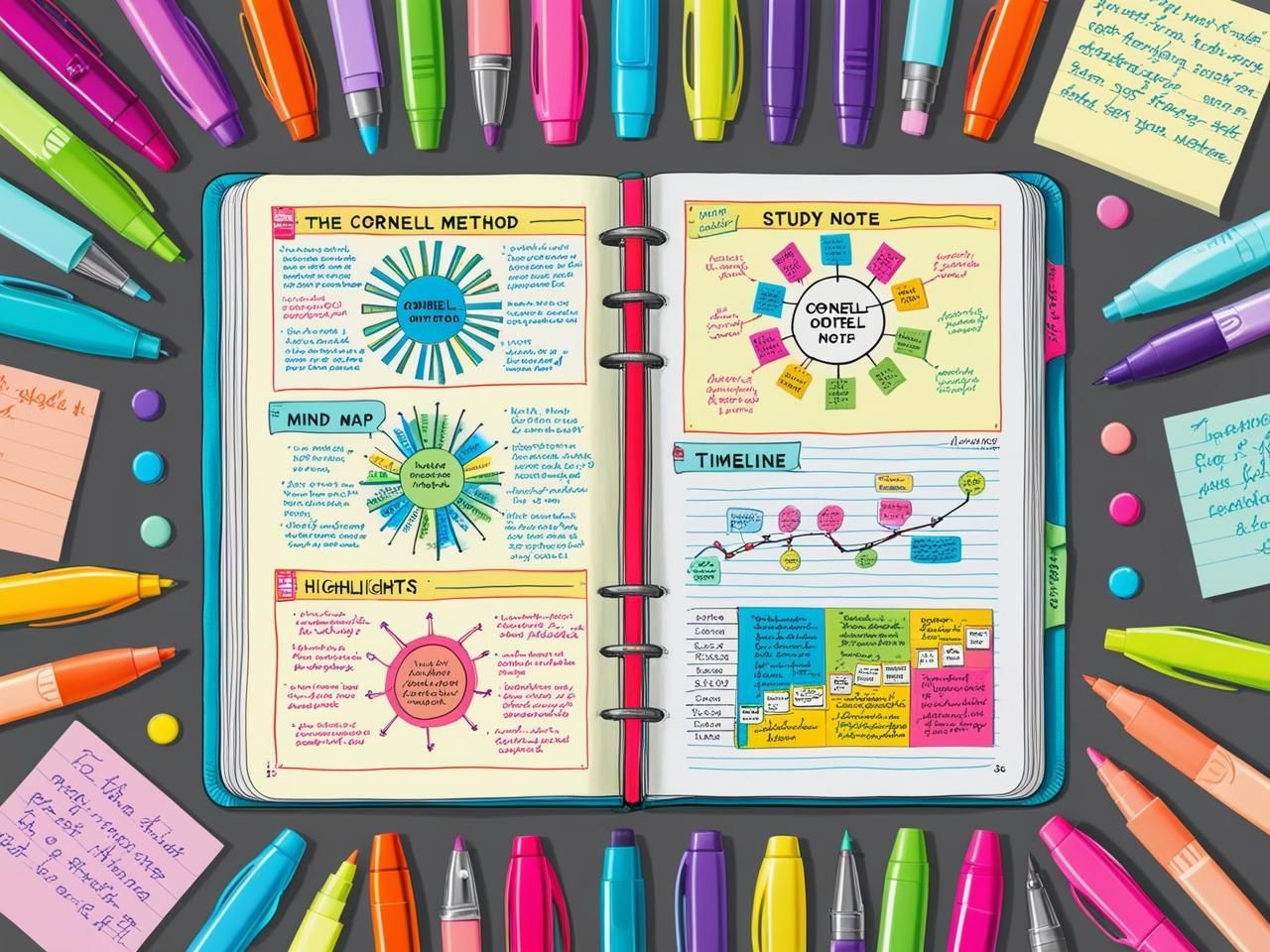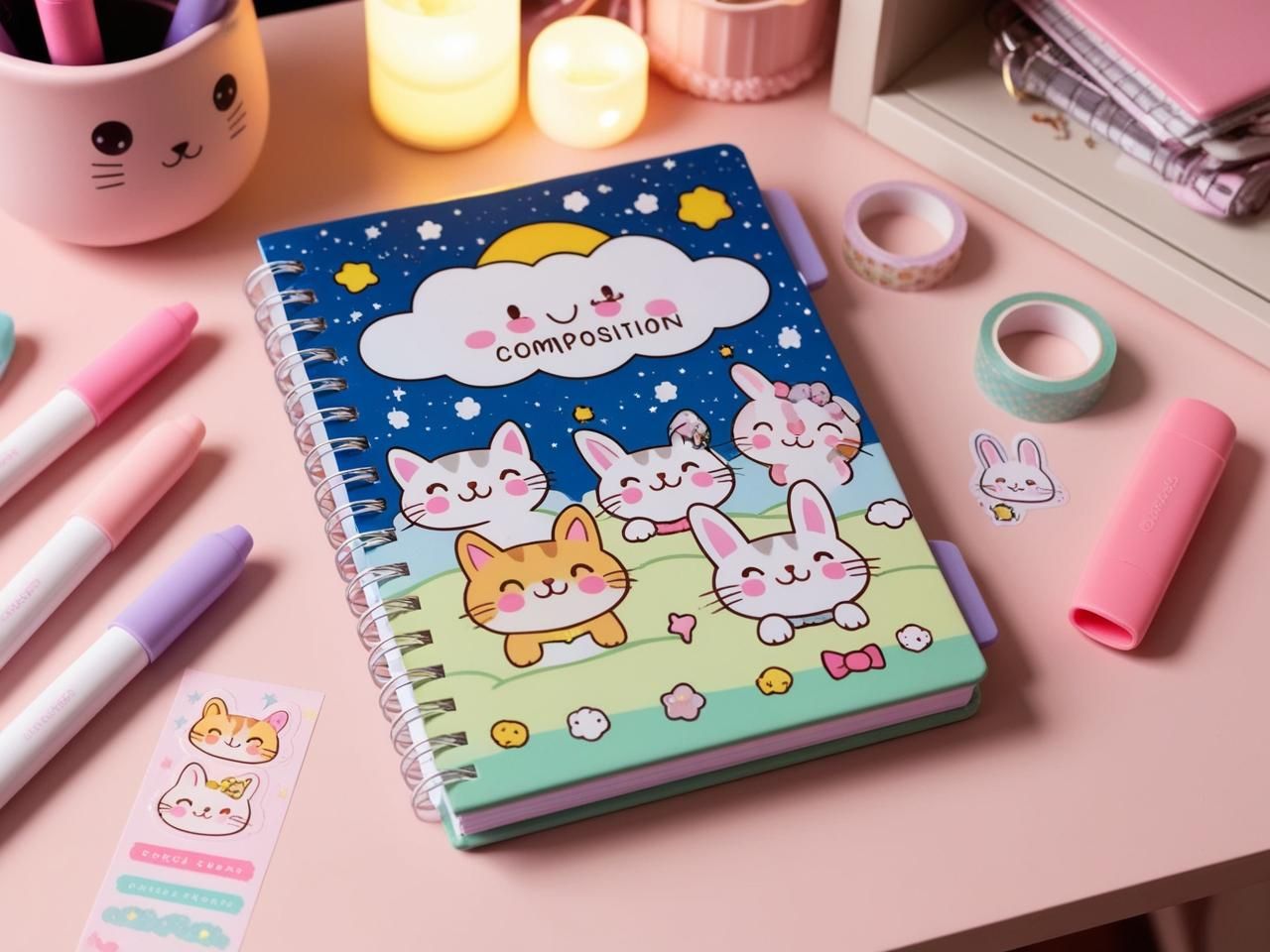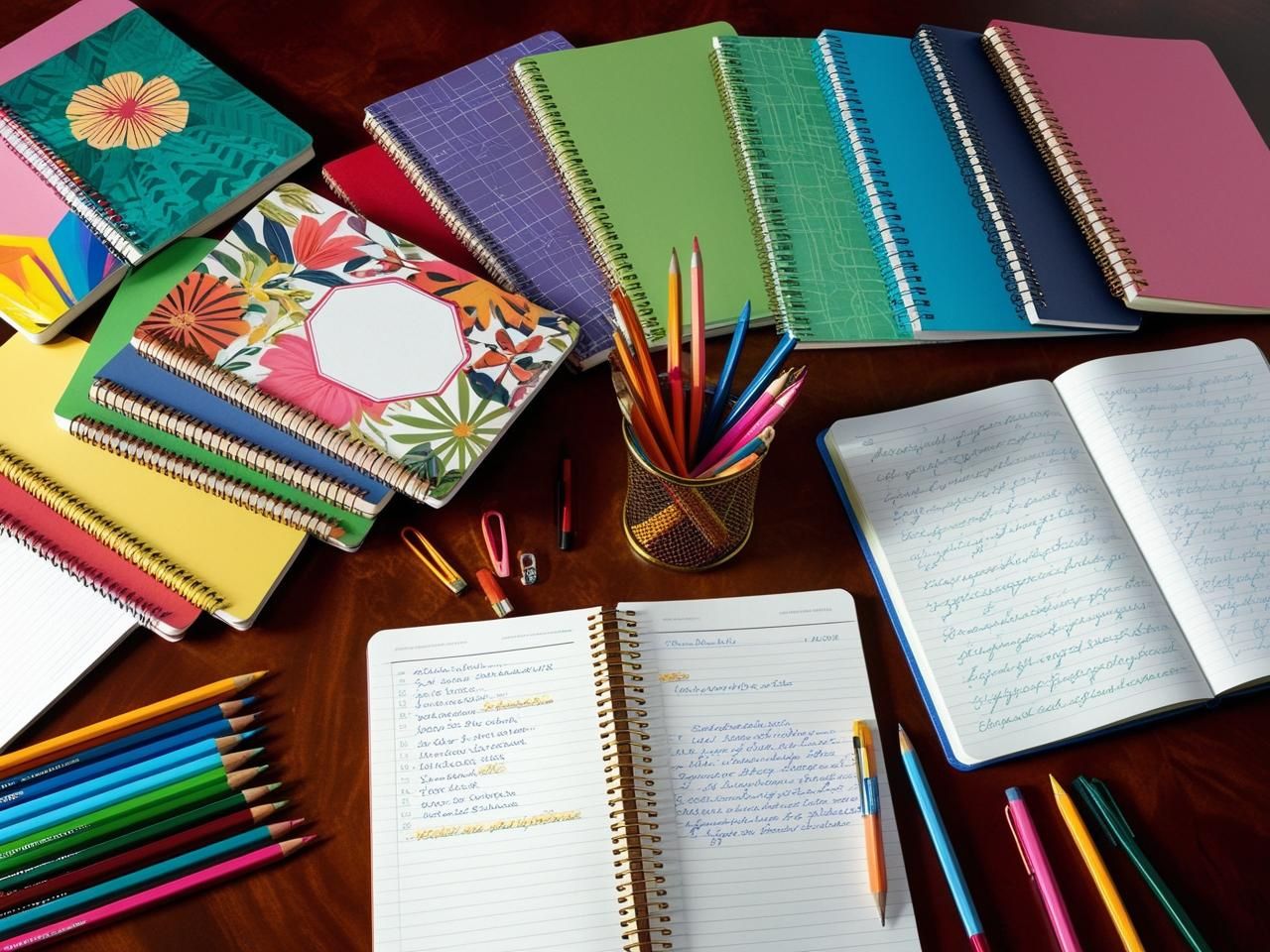- COMPOSITION NOTEBOOK
- Guides
- Best Composition Notebook Layouts for Study Notes: Stay Organized and Efficient
Best Composition Notebook Layouts for Study Notes: Stay Organized and Efficient
- Category: Guides ,
- Tags: Note-Taking, Study Notes

Keeping your notes organized is key to staying productive and successful, whether you’re a student, professional, or simply trying to manage your personal tasks. A composition notebook is a versatile tool that can help you streamline your notes if used effectively. This guide provides practical tips and techniques to organize your notes in a way that makes them easy to reference and highly efficient.
Table of Contents
ToggleWhy Use a Composition Notebook for Note Organization?
Compact and Durable Design
Stitched binding and sturdy covers keep your notes secure and intact. Explore durable options on Amazon.
Versatile for Any Subject
Works for class notes, meeting minutes, creative writing, or personal projects. Check multi-purpose notebooks on Amazon.
Cost-Effective Option
Affordable and widely available, making it accessible for anyone. Browse affordable composition notebooks here.

Step-by-Step Guide to Organizing Notes in a Composition Notebook
1. Start with an Index
What to Do: Dedicate the first 2-3 pages to an index. Update it with page numbers and topics as you add content.
Why It’s Useful: Makes finding specific information quick and hassle-free.
2. Number Your Pages
What to Do: Add page numbers to every page, either as you write or in advance.
Why It’s Useful: Helps you maintain order and reference topics easily in your index.
3. Use Sections or Dividers
What to Do: Divide your notebook into sections for different subjects or topics using sticky tabs, color-coded markers, or adhesive dividers.
Why It’s Useful: Keeps different types of notes neatly categorized.
4. Add Headings and Subheadings
What to Do: Write clear headings and subheadings for each section or topic.
Why It’s Useful: Enhances readability and helps you locate information quickly.



5. Use Bullet Points and Lists
What to Do: Break down information into concise bullet points or numbered lists.
Why It’s Useful: Makes notes easier to scan and review.
6. Highlight Key Information
What to Do: Use highlighters, underlines, or bold text to emphasize important points.
Why It’s Useful: Draws your attention to crucial information during review sessions.
7. Incorporate Visual Aids
What to Do: Add diagrams, charts, or mind maps where applicable.
Why It’s Useful: Helps with understanding complex topics and aids memory retention.
8. Reserve a “Quick Reference” Section
What to Do: Dedicate the last few pages for essential information, like formulas, key dates, or contact details.
Why It’s Useful: Acts as a go-to section for frequently needed information.

Tips for Maintaining an Organized Composition Notebook
Write Neatly and Clearly
Use proper spacing and legible handwriting to keep your notes tidy.
Review and Update Regularly
Go over your notes periodically to ensure your index and quick-reference sections are current.
Use Sticky Notes or Bookmarks
Add temporary reminders or mark important sections without altering your notebook.
Keep It Minimal
Avoid overcrowding pages with unnecessary information to maintain clarity.

Benefits of Organized Notes in a Composition Notebook
Saves Time During Study or Work
Quickly locate information when you need it.
Enhances Productivity
An organized notebook reduces stress and increases efficiency.
Improves Retention
Well-structured notes make it easier to understand and remember concepts.
Final Thoughts
Organizing your notes effectively in a composition notebook can boost your productivity and simplify your daily tasks. By implementing these simple strategies, you’ll transform your notebook into a powerful tool for learning, planning, and creativity. Start organizing today and experience the difference!
RELATED POST
Composition Notebook by Pieffeweb | Cookie Policy | Privacy Policy | Disclaimer












